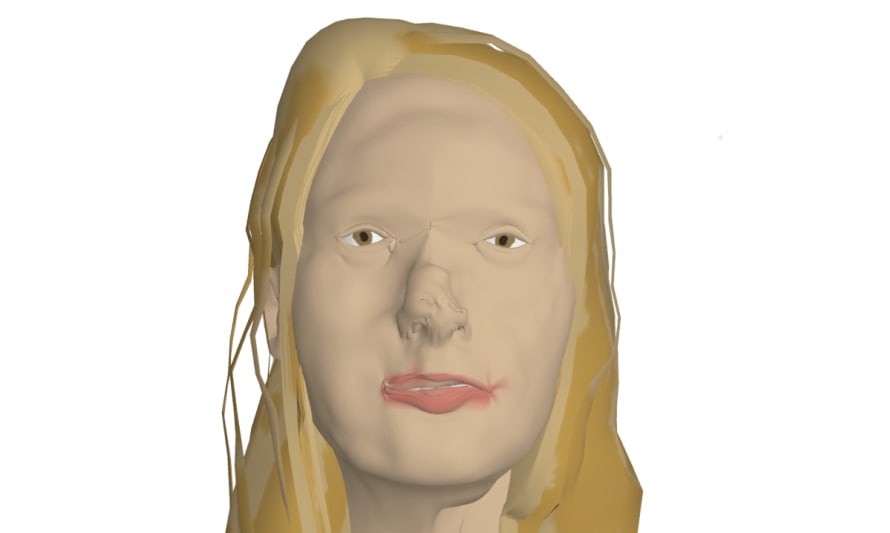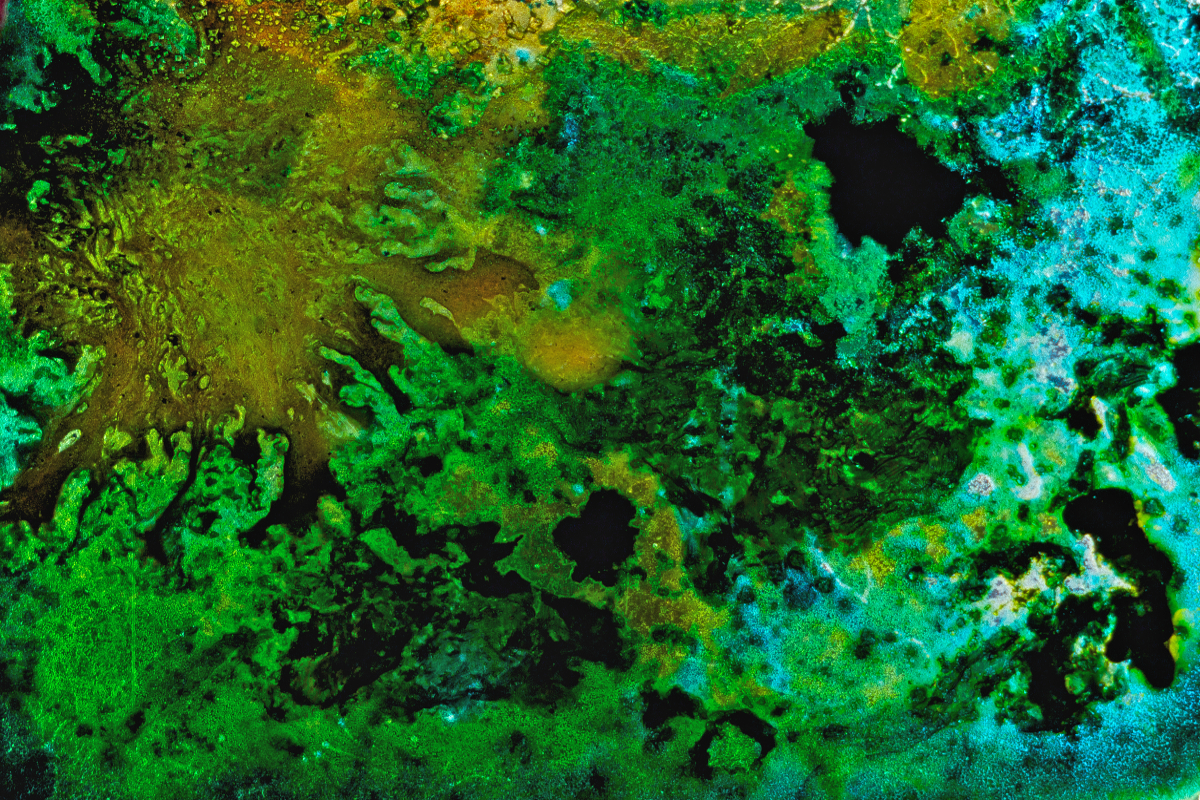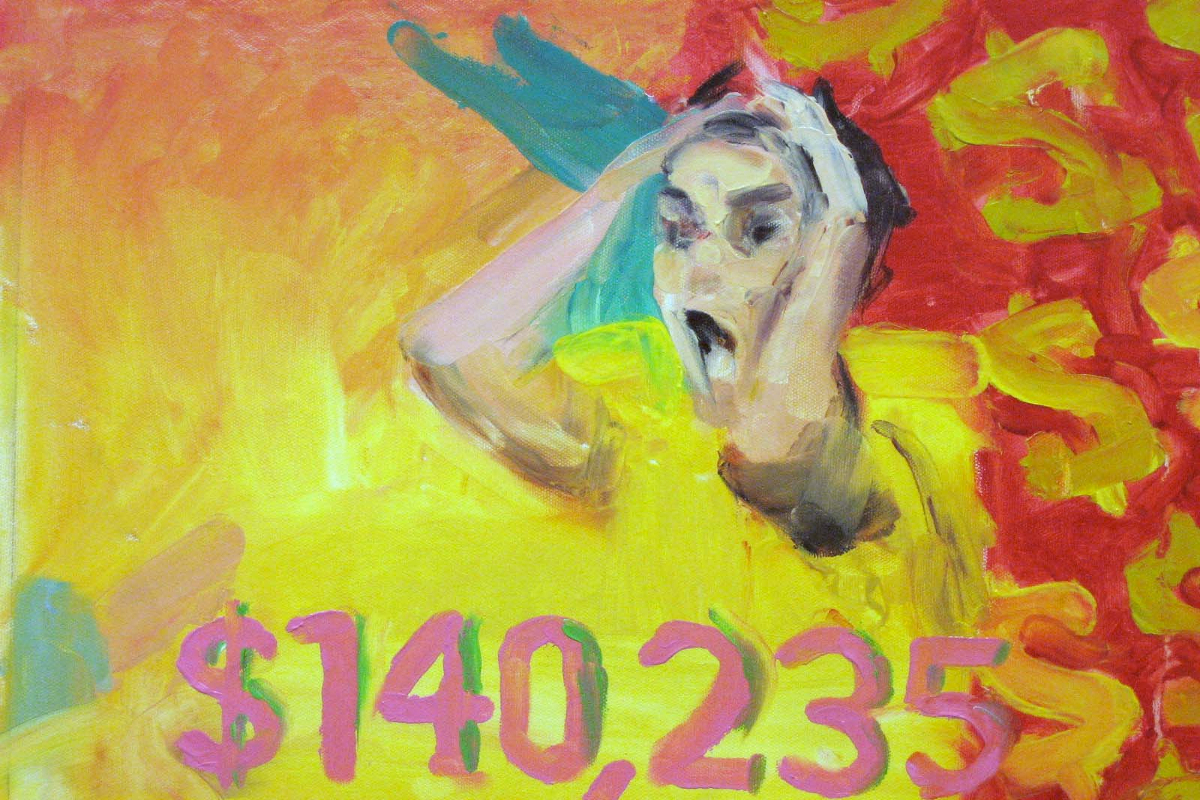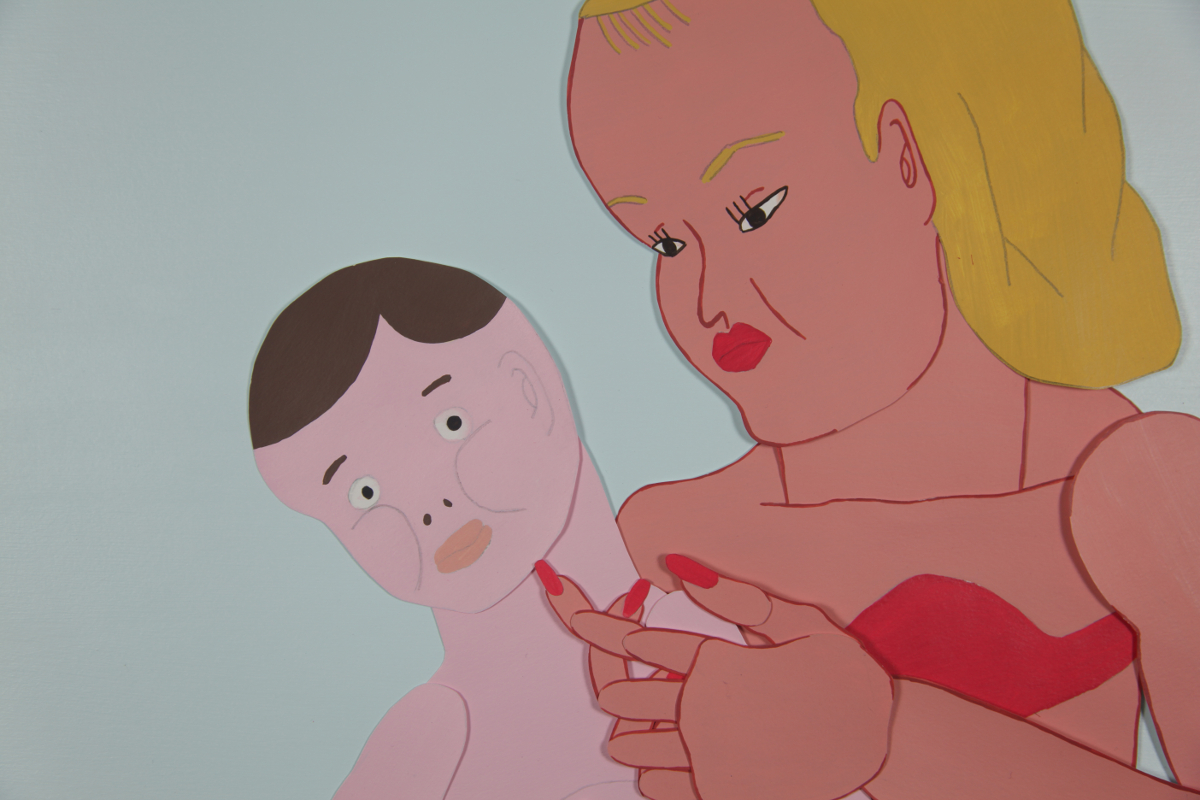
Edge of Frame Weekend
Jill (dir: Lilli Carré, 2016) - screening as part of Push and Pull on Sunday 11 December.
Edge of Frame is a blog that explores the unsung depths and far corners of experimental animation. As well as writing the Edge of Frame blog, founder and animation artist Edwin Rostron has organised, curated and programmed a weekend of discussions and screenings around the practice of experimental animation to chart what he sees as pressing concerns of the field and to celebrate some of the artists pushing the boundaries. We caught up with Edwin to find out more about his blog and the upcoming Edge of Frame Weekend.
As an artist of experimental animation, can you tell us about your background and how you got started?
Edwin Rostron: My parents both taught art, and I drew a lot as a child. I started making animated films during my BA in Fine Art at Sheffield Hallam University. I had been making collages and photographing the stages of building them up, as the process was more interesting to me than the end result. My tutor Paul Haywood suggested I use animation to take this further, as the University had a 16mm rostrum camera, so I just started experimenting with that and it went from there.
What excites you the most about contemporary experimental animation?
ER: This area of work is slippery, hard to define and crosses into most other art forms. This position contributes to its marginalised status and yet it is also what really excites me about the area. There isn’t even really a set idea of what experimental animation even is, I am just presenting my own loose interpretation. I am excited by work which confounds my expectations.
What drives your own process and motivates you to make work? What kind of themes run through your practice as an animator? Do you choose your subjects quite specifically, or do your subjects make orders on you?
ER: When I started making films they were like a form of release. I channelled a lot of destructive energy into them, trying to achieve some kind of catharsis. Then I started to get more interested in the form itself, and the films became less overtly about myself. The theme of the unconscious has remained central to my films since the beginning, from trying to confront my own unconscious drives to exploring the way animation can show an intuitive, unconscious, creative process at work through improvisatory ‘straight-ahead’ animation.
Visions of the Invertebrate (dir: Edwin Rostron, 2011)
In my recent work I have often used or appropriated the work of someone else, something which speaks to me on an unconscious level, such as the EVP recordings of Raymond Cass, or an obscure 1960s book about town planning, or the poetry and electronic music of Supreme Vagabond Craftsman, whom I have collaborated with on a number of occasions.
I try to be open to subject matter that captures my imagination, but in a way it is just a trigger, a means to an end, and the real ‘content’ is something beyond the surface, something that can’t really be articulated, and only found through the process of making.
Your blog Edge of Frame has been going since 2013. It’s an ever-growing collection of curiosities from the world of experimental animation and moving image, and the artists you interview don’t hold back! What prompted the making of a blog for you?
ER: I started the blog because it felt necessary. I wanted a space for the type of work I was making, focusing on experimental work made by artists engaging with the processes of animation directly, as opposed to the studio-made model of production. The context I wanted for my own work was (is) really only represented by a few other organisations like Eyeworks Festival of Experimental Animation and Animate Projects. There seemed a great need to understand and discuss this work better and to give it its own space, as it often seemed to be marginalised or misunderstood in the places it was shown or discussed.
What are the best discoveries you’ve gained from it?
ER: Through doing the blog, it has been fascinating for me to see the connections between different artists’ practice and also to uncover the networks and structures that have helped and supported the artists making their work. I think all the artists on the blog are hugely inspiring and deserve far greater exposure.
Mind Frame (dir: Jake Fried, 2016) - screening as part of Journeys Into Experimental Animation on Saturday 10 December.
How does the relationship between the practice of making experimental animation and writing about it work for you? Do you find these processes mutually beneficial?
ER: At first I felt the writing was a necessary thing to do, but that it took time away from making work. Then I realised that for me it is all part of the same thing, as it is now with programming screenings too. I see it all as part of my practice and each area informs the others. I gain a much greater appreciation and deeper level of understanding of other artists’ work from writing about it, which leads directly into my own work. Similarly, programming screenings enriches my overall knowledge and understanding of artists’ animation and its possibilities. It is all rooted in my being an artist and animator though, and I see the other things as extensions of that.
Looking ahead to the Edge of Frame Weekend coming up next week: can you tell us how it came about and what's in store?
ER: It was always a key aim of Edge of Frame to put on screening events. Once the blog started building up an audience, I approached Gary Thomas of Animate Projects for advice about screenings, which then led to them coming on board as co-curators on this event, the Edge of Frame Weekend (Dec 9-11). Their participation has enabled it to grow into a really exciting and expansive celebration of experimental animation.

Landfill (dir: Jennifer Reeves, 2016) - screening as part of Elemental Animation on Friday 9 December.
We have 5 screening programmes spread over 3 days, with work from over 50 British and international artists, spanning the last 50 years, including Peter Millard, Jodie Mack, Yoriko Mizushiri, Robert Breer, Martha Colburn, Stuart Hilton and many more! Quite a few of the artists will be present to introduce their work, including Laura Harrison, Emma Calder, Susan Young, Vicky Smith, Ian Helliwell, Kayla Parker and Jordan Baseman, plus more to be confirmed.
Madame Potatoe (dir: Emma Calder, 2012) - Emma Calder's 1984 Music for Modern Americans (1984) is screening as part of Journeys Into Experimental Animation on Saturday 10 December.
Eyeworks Festival of Experimental Animation is a huge inspiration for Edge of Frame, so it is particularly exciting that they have curated a special programme for this event, with works by Jim Trainor, Oliver Laric and more. Eyeworks’ Alexander Stewart and Lilli Carré are terrific filmmakers themselves, making some of the most interesting experimental animation around today, and we are thrilled to present a programme of their work on the final day of the Weekend. Alexander Stewart will be here from LA to introduce both programmes.
No Kill Shelter v 1.0 (dir: Jodie Mack, 2013) - Jodie Mack's Something Between Us (2015) is screening as part of Elemental Animation on Friday 9 December.

Lauren Gregory's TV (dir: Lauren Gregory, 2016) - screening as part of Journeys Into Experimental Animation on Saturday 10 December.
The opening seminar at the Edge of Frame Weekend discusses the position of experimental animation practices today. Can you give us a teaser of what sort of debates characterise the field and what kind of discussions can be expected?
ER: We have a fantastic line-up of speakers in the seminar, including Deputy Director of LUX Maria Palacios Cruz, Head of Animation at RCA Birgitta Hosea, writer and curator Adam Pugh, artists Alan Warburton and Stuart Hilton to name but a few. There will be a broad range of topics under discussion, from our relationship with CGI, to the work of three contemporary Chinese artists, to concepts of Visual Music and multi-screen culture. It should be a really fascinating and inspiring event.
What considerations did you make for the curation and programming of the Weekend?
ER: I tried to focus on the work which I find the most exciting and inspiring to me as an artist, whilst also showing a relatively balanced and broad range of approaches. It is just one idea of what experimental animation might be, and is in no way definitive. I am very conscious of all the amazing work I couldn’t fit in; there are enough great films out there to fill many more events!
What are you most looking forward to?
ER: I am really looking forward to everything obviously! I am very excited about seeing a number of direct animation works projected on 16mm and 35mm film, such as Richard Reeves’ ‘Linear Dreams’ and Jennifer Reeves’ ‘Landfill 16’. These works were made directly onto film and I have only seen digital transfers so I can’t wait to see them in their full glory!

Jessica (dir: Amy Lockhart, 2014) - screening as part of Journeys Into Experimental Animation on Saturday 10 December.
What do you hope the Weekend to achieve?
ER: I hope to increase the visibility of experimental animation to a broader audience, to give an opportunity to see some amazing works in the cinema rather than on the computer screen where many are often experienced. I want to create a space for discussion and reflection on this area of work where new connections and links might be forged.
What future projects are on the horizon for you?
ER: I am in the midst of two animation projects at the moment; one is a continuation of an ongoing collaboration with musician and writer Supreme Vagabond Craftsman, and the other is a commission to accompany an opera, with three other animators, co-produced by Animate Projects and London Sinfonietta. I will be putting on more screening events in 2017 and continuing the Edge of Frame blog. I am also hoping to produce a book on experimental animation at some point in the future.
The Edge of Frame Weekend is taking place Fri 9th – Sun 11th December 2016 at Whitechapel Gallery and Close-Up Cinema.
For more info see http://www.edgeofframe.co.uk/edge-of-frame-weekend/
The Edge of Frame Weekend is curated by Edge of Frame and Animate Projects – the UK’s foremost champions of innovative animation practice. It is supported by Jerwood Charitable Foundation, Royal College of Art, and using public funding by the National Lottery through Arts Council England.
